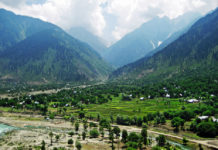New Delhi (NVI): Tourism industry is leading other global sectors in advancing gender equality with about 54% of women contribution in industry’s workforce globally compared to 39% in the broader economy, although women are underrepresented in digital platforms and technology in tourism, according to a global study.
According to the study conducted by World Tourism Organization (UNWTO), in collaboration with UN Women, The German Society for International Cooperation (GIZ), World Bank Group and Amadeus, women make up the majority of the tourism workforce worldwide. The gender wage gap is narrower in tourism than it is in the broader economy at the global level. However, tourism employment is comparatively lower-paid for both men and women than average wages across the broader economy.
The wage-gap is smaller in the tourism sector as the women in tourism earn 14.7% less than men compared to 16.8% in the broader economy. The industry offers women with more opportunities for leadership roles, around 23% of tourism Ministers are female compared to 20.7% of Ministers overall.
India ranks 108th of 144 countries on the World Economic Forum’s Global Gender Gap Index. The country’s female labour force participation rate is estimated at just 27%. In India’s private sector, very few women are in decision-making positions and the tourism sector’s higher management levels are heavily dominated by men.
Women tour leaders in India are exceptionally rare, as the nature of the role requires them to be away from home for extended periods of time. Tour leading is considered a challenging role for women in India, with deep-seated cultural reasons behind this belief.
Peak DMC, a trusted destination management company initiated a proactive action to organize tours with women leaders differs slightly than for men leaders in India. As per data, from only two women tour leaders in 2016, when the company decided to extend a unique approach, it has now 16 female tour leaders with an increase of 700%. This is the highest number of any inbound tour operator or destination management company in India.
Citing an example of Diageo Asia Pacific Plan W (Women) Programme 2012, the study said “Plan W has been actively promoting women’s careers, success and leadership within the hospitality industries. Within three years of its launch, Diageo claimed to have trained 40,000 women across Asia and the Pacific region,” adding that, “In March 2014, it organized the Women in Hospitality and Tourism in Asia Conference in Singapore. Diageo is now trying to provide equal access to skills and resources for women farmers and supporting them within farmer unions and co-operatives.”
In 2018, Diageo reported reaching more than 164,000 women and plans to empower 2 million women across Asia and the Pacific through learning.
Globally, only 25% of women are employed in IT while 5% of tech start-ups are owned by women. Although digital tourism is becoming a more prominent issue, gender has not yet been explicitly explored. Nonetheless, examples exist in digital tourism platforms and technological solutions working for women’s empowerment in the sector.
Women hold less than 40% of managerial positions, less than 20% of general management roles and less than 8% of board positions. In all regions, the accommodation industry employs many women at the lower levels but very few in higher management. Moreover, women’s mean hourly rate is significantly lower than men across regions, said the study.
Trends among tour operators and travel agencies reflect the gender pay gap that exists across tourism industries. Jobs like tour guides are highly masculinized across regions – from Africa to Asia and the Pacific – underpinned by restrictive gender norms, stereotypes, gender-based violence, sexual harassment and security concerns.
Community-based tourism and related creative industries, alongside accommodation, are the industries which engage most women in tourism around the world. Women’s participation in community-based tourism is high worldwide, with a particularly long history in Latin America and the Caribbean, the study further added.
–ps











